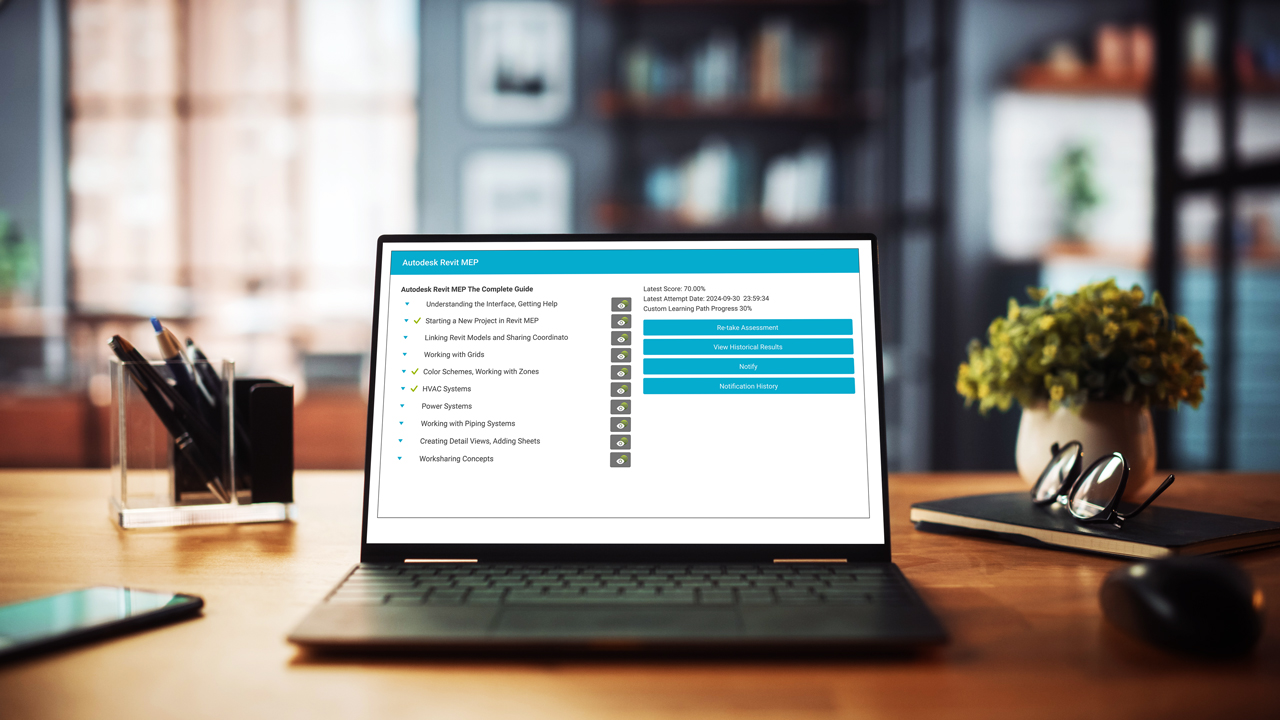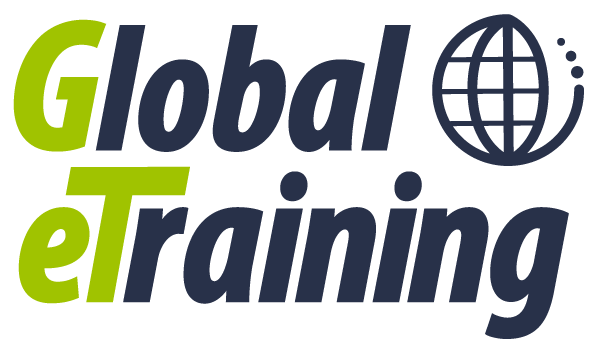In the dynamic fields of architecture, engineering, construction and manufacturing, staying ahead with the latest technical skills is not just beneficial—it’s essential. As the industry rapidly evolves, so does the necessity for professionals to continuously upgrade their skill sets. Global eTraining offers a comprehensive solution through its skills gap assessment solution, GeT Insights, designed to pinpoint and address these knowledge gaps effectively.
What Are Skills Gap Assessments?
Skills gap assessments are smart exams that identify the disparity between the current skill levels of employees and the skills required to perform their roles efficiently. GeT Insights enhances this process by providing detailed reporting as well as custom learning paths to quickly and easily close these gaps, enabling both individual and organizational skills growth.

Competitive Advantages of GeT Insights
For Learners
- Targeted Learning: Identify knowledge gaps with GeT Insights skills gap assessments – built to provide accurate testing and reporting on learner’s knowledge in the most popular AEC software, such as AutoCAD, Revit MEP, Civil 3D and more!
- Efficient Training: Spend less time training with access to custom learning paths, complete with the content each learner needs to review based on areas of weakness identified in their skills gap assessment. This enables learners to focus on developing the skills they need, not the skills they already have.
- Report on Progress: Access ‘question by question’ quiz results and extensive skills gap reports, which can be shared with managers and employers, or downloaded and saved for future records.
For Managers
- Informed Hiring Decisions: GeT Insights acts as a strategic pre-hire assessment tool, enabling managers to evaluate candidates’ software skills accurately. This reduces the risk of hiring mismatches and ensures new hires are ready to contribute quickly and effectively.
- Easy Onboarding: With in-depth skills testing, managers can identify new hires’ knowledge gaps early and address them with custom learning paths, facilitating a smoother transition into the company.
Addressing Key Challenges in the AEC Industry
1. Reducing Training Time
- Focused Training: By utilizing real-time quiz results and skills gap reports, managers can pinpoint specific training needs, combined with automatically generated custom learning paths, reducing unnecessary training time and focusing on areas that require development.
- Streamlined Learning: Custom learning paths ensure that team members only spend time on skills they need to improve, enhancing overall productivity.
2. Improving Team Performance
- Real-Time Insights: Access to detailed quiz results allows managers to monitor progress and adjust training strategies as needed, ensuring continuous improvement.
- Collaborative Growth: Sharing skills gap reports with managers and team members fosters a culture of transparency and collective growth, encouraging peer support and collaboration.
3. Creating Custom Training Content
- Tailored Assessments: Companies can integrate GeT Insights assessments into their custom-built training programs, creating quizzes that reflect their specific needs and challenges.
- Insightful Feedback: The inclusion of ‘Insights’ within custom training materials helps learners understand their mistakes, promoting deeper learning and comprehension.

Why AEC Companies Should Embrace Skills Gap Assessments
- Enhanced Competitiveness: By ensuring that employees possess the necessary skills to perform efficiently and effectively on projects, companies remain competitive and win more bids in a rapidly changing industry landscape.
- Cost-Effective Training: Skills gap assessments optimize training budgets by focusing resources on areas that yield the highest return on investment.
- Future-Proof Workforce: Regular assessments and updates to learning paths ensure that the workforce remains adaptable and prepared for future challenges.
GeT Insights skills gap assessments provide a strategic approach to workforce development in the AEC industry. By addressing specific challenges and leveraging competitive advantages, these assessments empower companies to build a skilled, efficient and future-ready team.
